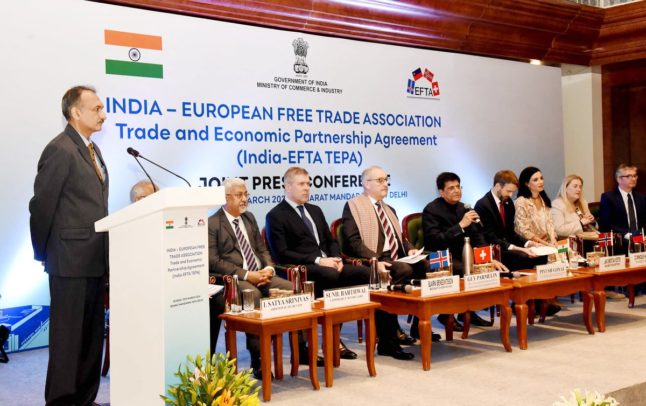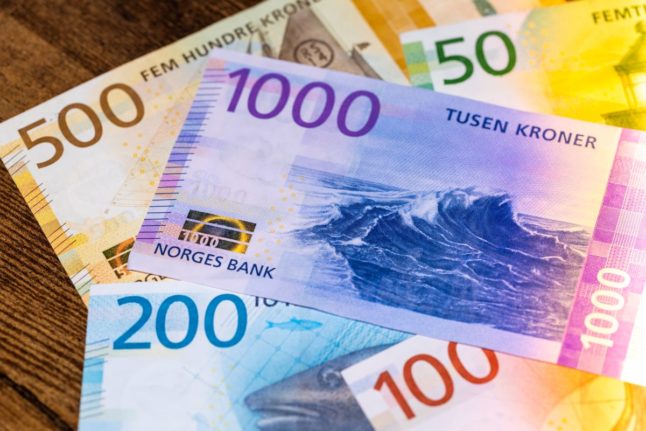The deal will see the European Free Trade Association (EFTA) — made up of non-European Union nations, including Iceland and Liechtenstein — invest $100 billion over 15 years in India, the world’s fifth largest economy, India’s Trade Minister Piyush Goyal said.
“The India-EFTA Trade and Economic Partnership Agreement (TEPA) marks a historic milestone in our growing partnership,” Goyal said after the signing in New Delhi.
The agreement “will pave the path for mutual growth and prosperity” by boosting exports, promoting investment and creating employment, he added.
The deal was signed after several rounds of negotiations spanning 16 years.
Indian Prime Minister Narendra Modi said the trade agreement “symbolises our shared commitment to open, fair and equitable trade”, according to a statement read out at the signing ceremony.
Swiss Economy Minister Guy Parmelin said the deal “will allow us to make better use of our economic potential and create additional opportunities for both India and the EFTA states”.
“EFTA countries gain market access to a major growth market… India, in return, will attract more foreign investment from EFTA, which will ultimately translate into an increase in good jobs”, he added, speaking in New Delhi.
EFTA was established in 1960 to promote free trade and economic integration between its members. In 2021, it was the 10th largest trader in the world in terms of merchandise, and the eighth largest in services.
In recent years, India has signed trade agreements with Australia and the United Arab Emirates.
A long-talked-about trade deal with Britain is also said to be in the final stages.



 Please whitelist us to continue reading.
Please whitelist us to continue reading.
Member comments